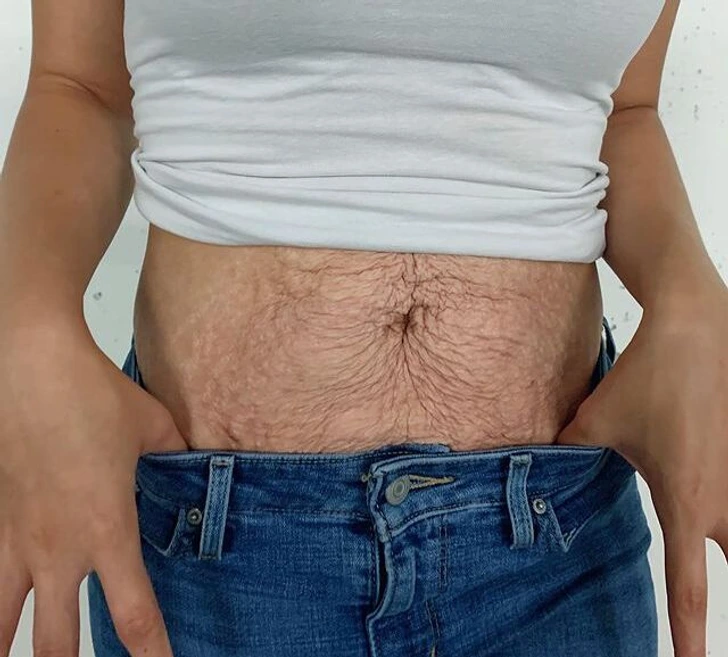
A Woman Shows the Raw Truth of Postpartum Bodies
In a society full of filtered photos and manufactured beauty standards, a courageous mother of four is rewriting the story of postpartum bodies by accepting her own path and encouraging others to follow suit.

Danisha, a happy mother of four, recently posted her motivational story on social media about accepting oneself and one’s physique. With her most recent child, Danisha decided to go against social norms, even though she admitted that at first she felt ashamed and sought to cover up her postpartum belly.
I never imagined that I would have loose skin and stretch marks for the rest of my life. She revealed, “Nobody ever discussed it, and my doctors never brought it up. “Yet, I’m content with my body and want to embrace it.”

Danisha is adamant that a woman’s body is capable of miracles, debunking the idea that perfection is possible and enhancing other people’s self-esteem. In an Instagram post, she cautioned other mothers, saying, “Don’t let society fool you into thinking you need to be ‘fixed.’” Society is at fault, not your physique!
Danisha is dedicated to challenging the societal convention that requires women to quickly revert to their pre-pregnancy appearances. She recognizes the difficulty many mothers face in trying to live up to unrealistic expectations and emphasizes the importance of accepting and appreciating one’s body from all angles.

Danisha’s pieces have drawn both praise and condemnation for their frankness, but she remains steadfast in her mission to reveal the reality about a mother’s body. Despite the criticism, she continues to be an example to other women who may not be prepared for the challenges of adjusting to life after motherhood.

“Genetics can get involved and create a different person in the mirror, even with all of our hard work and efforts to keep our bodies in shape,” Danisha stated. She underlines that her drooping skin, stretch marks, and “love marks” on her body are evidence of her incredible accomplishment in giving birth to four children.

In a society where prejudice based on appearance is sometimes tolerated, Danisha’s message is extremely clear: every mother is different and deserving of respect and love. Whether or whether they want to cover their stomachs, she underlines that women are valuable and beautiful, and she exhorts them to accept this aspect of their bodies.

Stretch marks are common and every physical change a woman has on her body tells a distinct tale; Danisha’s journey to self-acceptance serves as a powerful reminder of this. Her encouraging remarks may resonate with mothers worldwide, encouraging them to recognize the beauty in the incredible journey that is parenting.

